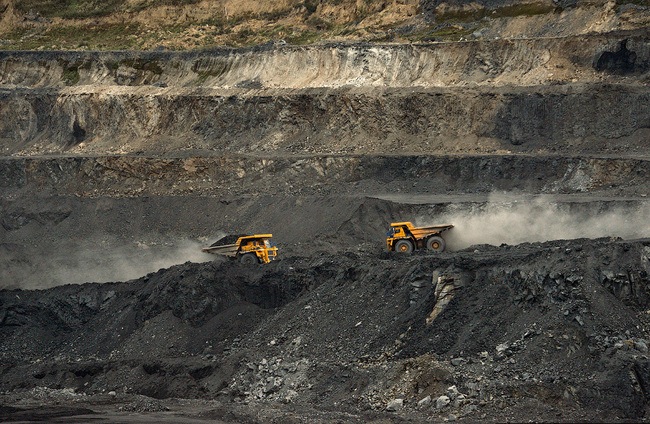Bucking the bear market in commodities

Mom & Pop’s Falling Out
Atrum Coal has been the standout success story in the coal market in recent years. Arguably, it has been the only success story.
The tiny Australian company listed in 2012, but it has since drilled-out a multi-billion tonne deposit in British Columbia, scooped-up assets as others have fled the sector and remained glued to high-value anthracite, the one corner of the coal market to remain isolated from a price collapse. More than half of Atrum’s stock is meanwhile held by the three directors who floated the company.
It was the ultimate “Mom and Pop” business, using cash and conservative financing to minimise equity issuance, said co-founder Russell Moran as shares rocketed in 2013. But then Mom and Pop fell out. Really terribly badly.
The shares went into suspension in June and after weeks of silence, court papers emerged showing that Moran had sought an injunction against the company, blocking it from reporting personal loans he held against his shares. The injunction was overturned, the company disclosed his personal debts and Moran and fellow director Gino D’Anna promptly resigned from the board.
Moran meanwhile told The Australian that holding nearly a fifth of Atrum’s stock, he could seek an EGM, promising an ugly rerun of Nathan Tinkler’s exit from Whitehaven in 2012, still fresh in the memory of Australian coal investors. But for the first time, directors on both sides have given their views on the board divide and the tone is overwhelmingly conciliatory.
Any Resignation’s Hard
“It was an argument over balancing the rights of privacy with the obligation of the company to make disclosures,” Russell Moran tells Master Investor.
“Any resignation’s hard, but we’re at the cusp of receiving the necessary permits to move into development, I have a particular skill-set and it’s not in developing mines, so the company has always needed to go through a change in structure and this is part of it. It is what it is.”
Moran is based in Perth, but speaking from Sydney, co-founder James Chisholm, who remains Atrum’s chairman and largest investor, says Russell’s injunction, resignation and interview with The Australian all caught the board by surprise.
“Up until this loan issue, all resolutions had been passed unanimously by the board,” he says, in a rare interview. “I got resignation letters from both of them one afternoon within about half an hour of each other, so it was a bit of a surprise.”
Chisholm says there had been no prior warning, or discussion of resignations, but is confident that both former directors “will resolve their personal financial positions” and remain supportive going forward. “Like a lot of people in the market, we hear rumours on a daily basis about their loans, but that’s all we know.”
Russell Moran and Gino D’Anna have since been replaced on Atrum’s board by senior coal bosses from US-based Peabody Energy and Canada’s Teck. “Russell and Gino have a lot of shares in the business,” says Chisholm, who credits the pair for finding Atrum’s flagship Groundhog asset. “I’m sure they want to see the business succeed and I think they’d be very impressed with the calibre of the people who are coming on board.”
Moran says he was quoted out of context by The Australian and fully supports the new appointments. “Those guys have got tremendous experience,” he says. “Of course I support the company, I’ve never not supported the company, so in that sense, of course it’s amicable.”
“Atrum’s substantially owned by three highly-vested, passionate investors and we don’t always agree, but that doesn’t mean we’re not zealots for the project.”
Very Buoyant
Atrum’s shares opened 40 per cent lower when trading resumed two weeks ago and it may take time for the company to rebuild confidence within the market. But having signed MoUs with three of Japan’s largest trading houses, Chisholm and the new board can again focus on locking-in a project partner, funding Groundhog into production.
“We’re back trading again, so we’re happy about that,” he says, sounding relaxed. “I think the asset is unique and in an environment where coking coal and thermal coal prices are quite depressed, anthracite prices are very buoyant.”
“I’m like every other shareholder now,” says Moran, “but all members of the board were always in agreement that the first major piece of financing we did was possibly the most important decision we’d make.”
“In that respect, we’re all very conservative and my understanding is that the company is extremely confident that it is going to be able to complete the project sell-down at a very high valuation. That’s really the driver for them.”
Moran says he has no plans to sell shares and remains Groundhog’s biggest supporter. “We’ve always said that we’d like to be there when it’s exporting its first shipment of anthracite,” he says. “I’d be sad if I wasn’t there when we did.”
Co-published by Global Mining Observer
Comments (0)